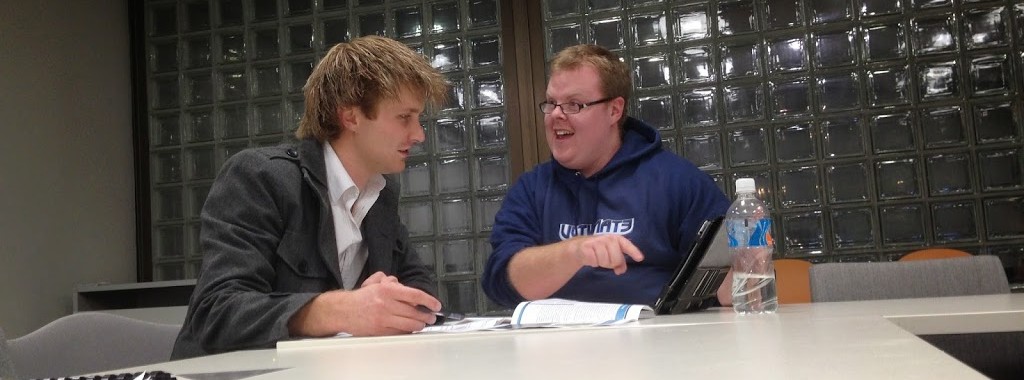Youth work and excellence.
8 tips for amazing youth work external supervision.
External supervision
Two years ago when Ultimate Youth Worker began we started as a small external supervision service for youth workers. We started this because we saw the lack of supervision given to our friends and colleagues as well as the lack of qualified youth workers providing external supervision. We wanted to see youth workers supported by youth workers to develop their youth work practice. Over the past two years we have supported dozens of youth workers to do just that. However, we still hear of people offering supervision to youth workers which cause more trouble than support.
These well meaning people, often social workers and psychologists, do not understand the intricacies of youth work theory and practice. They begin to make their supervisees more like them. Youth workers deserve better. We deserve supervisors who understand youth work theory and practice and how they interweave. We deserve the best possible support to do the work we do.

So what should we look for when choosing an external supervisor. Here are a few thoughts we have on the expectations of a good youth work supervisor:
- They must have a youth work background. It should not come as a surprise but many other professions do not work with young people. There are also issues which youth workers face which are not covered by other professions. I have heard of social workers, psychologists, OT’s and nurses supervising youth workers when they have never worked with young people. A great external supervisor will have extensive youth work experience… at least five years direct practice is a minimum.
- They must be qualified. They must hold a qualification in youth work. Minimum of a diploma level however we recommend the degree. They must also have some qualification in supervision. The minimum standard should be one of the five day courses available by many professional associations.
- They must have an articulated best practice framework of supervision. If they cannot articulate the framework they use and why then do not hire them. They must address how they will work with you and the areas they will cover with you.
- They must have a track record of other clients. If it is the first time they have supervised people you don’t want to pay to be a guinea pig. If they are genuine they will have a record of staff they have supervised.
- They must be a member of a professional body. Whether it is a youth work professional association, a peak body or another professional body. You want to know that they are being kept accountable for the work they are doing within the youth sector.
- They must be accessing supervision themselves. Good supervisors have to talk things through too. They need to make sure they are supervising well and ethically. They need to unload the traumas they hear as much as their supervisees.
- They must hold professional indemnity insurance. While you should never need it, if you get advice and you use it and something goes wrong you need to be aware that they are insured.
- They must be a fit and a challenge. This one takes time and why we recommend a review after the first few sessions. They must fit you personally. Your personality and where you want to be going. And, they must be able to challenge you. to help you step outside yourself and try more.
If you ask your potential external supervisor these questions then you will be assured to have a great supervisor to help you trek through the ups and downs of youth work. If you want a supervisor who ticks all these boxes contact us and we will point you in the right direction.
Apply for supervision today
Youth workers: write, do or do both.
Where do you fit on the spectrum? Leave us a comment below.
Relational youth work.

Sign up to our newsletter for more thoughts on deep engagement.
Youth worker self-care: Meditation
 Self care through meditation
Self care through meditation
- It increases the synchronicity in your life
- It helps living in the present moment
- It increases self-actualisation.
- Provides peace of mind, happiness
- Decrease in potential mental illness
- React more quickly and more effectively to a stressful event.
- Helps with focus & concentration
- Increases serotonin level, influences mood and behaviour.
- Greater Orderliness of Brain Functioning
- Improved flow of air to the lungs resulting in easier breathing.
- Enhances the immune system.
- Reduces activity of viruses and emotional distress
- Helps in chronic diseases like allergies, arthritis etc.
- Leads to a deeper level of physical relaxation.
- It increases blood flow and slows the heart rate.
As a youth worker, these are all skills I could use more of everyday. Meditation is one of those skills I have tried before but never implemented as a long term ritual. After looking into the benefits of meditation I can’t believe I let it go without a bit more of a fight. Meditation fit within all areas of our self care plan and affects all areas immensely. Meditation is great.
Join us on Facebook for more thoughts.
We need older youth workers!
Adolescent brains are awesome.
Adolescent brains
I love TED talks! There is nothing quite as awesome as a snippet of bite sized informative goodness wrapped in a video. TED talks make us think very differently about the world we live in. They help us to dream and learn and hope for the future. One area in whichTED talks have enriched my work is in understanding brain development.
Sarah-Jayne Blakemore is Professor of Cognitive Neuroscience at the Institute of Cognitive Neuroscience, University College London. Her research covers the development of social cognition and decision-making during human adolescence. She is Co-Director of the Wellcome Trust PhD Programme in Neuroscience at UCL, Editor-in-Chief of the Developmental Cognitive Neuroscience journal and was a scientific consultant on the television documentary “The Human Mind” in 2003. She is a member of Royal Society BrainWaves working group for neuroscience and the Royal Society Vision Committee for Maths and Science Education.
In this Talk Prof. Blakemore brings us an animated look at the inner workings of the adolescent brain. Much of what we have thought about brain development over the past few decades is slowly being re-thought. With the advent of Functional Magnetic Resonance Imaging (FMRI) we are beginning to see the inner workings of the brain while the brain is working. We don’t have to wait for a person to die to cut into their brain to see whats inside.
We now know that the period of adolescence sees a significant growth in grey matter. A growth spurt to provide the space for the significant intellectual growth that occurs during these formative years. Particularly the growth in the prefrontal cortex, the brains reasoning centre, seems to increase during this stage. Anyway, enough from me. Over to Professor Blakemore for more interesting insights into adolescent brains.
For more on great youth work follow us on Facebook.











